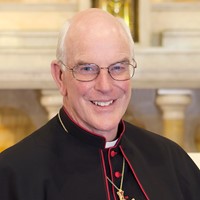In pre-Christian Europe, for example, an elder generally performed some form of “hand joining”. There were already such arrangements in the societies in which Christianity took root, and for a long time, marriage remained more a customary ritual than a specifically religious or Christian institution.
The Church, in fact, became involved in marriage rather slowly and hesitantly. There is medieval evidence of people marrying according to customary forms and then going to the church for a blessing, often given at the church door. Only gradually did the marriage itself come to be something that belonged “in Church”. But in the mid-12th century, Peter Lombard included marriage in his list of the Seven Sacraments and it became very much Church business. To this day, however, the Church doesn’t actually marry people – they marry each other. The consent of two Christians makes the Sacrament of Marriage, so that in Church law a couple can validly marry without a priest if they can’t get one for a month or so. The blessing then occurs when the priest next comes by.
All of that background is to say that there’s always been marriage as a social phenomenon, regulated by custom or the law of the land, and then there is Marriage, the Christian sacrament. That they are separate things is clear in countries where Catholics need to have two ceremonies, a “legal marriage” before a state official and then a sacramental marriage before a priest. In Australia, this doesn’t happen, but only because ministers of churches are also made state-registered marriage celebrants. I am authorised celebrant #N 16360. Anyway, the point is there’s marriage according to Australian law, and there’s the Sacrament of Marriage in the Church. And there are differences.
First, sacramental marriage is permanent because it is a sacrament, an act of God that unites the couple so that, as Jesus said: “What God has joined together man must not divide.” Yet civilly, marriages can be dissolved after a year’s separation. There can be other differences such as the permissible age for marriage, the allowable degree of consanguinity, the required notice to be given beforehand, and whether marriage by proxy is allowed. Above all, there are differences in who can marry.
Divorced people can marry again civilly but not, prima facie, in the Church. And recently our state has allowed the marriage of people of the same sex. We can see here two distinct understandings of marriage, one as a legal relationship reflecting current community values, the other as a rite consecrating a wonderful human thing by bringing it to God to be filled with grace and the power of the Spirit. The Church respects both as rich in their human value to the individuals involved, to families and to society. But they are still different.
Which brings me at last to the recent Vatican direction that the Church’s ministers cannot give a blessing to same-sex marriages. In the relatively short statement, to which Pope Francis assents, it is recognised that there can be many good elements in a loving, committed same-sex relationship, but it lacks the element of Christian marriage that is about a man and a woman coming together, in love certainly, but also with an intent and an openness to creating new life from their union.
The statement is quite specific in saying that we cannot bless the union as such, as if it were a sacramental marriage. But this “does not preclude the blessings given to individual persons with homosexual inclinations”.
This latter point needs to be read in the light of all Pope Francis’s teaching, particularly in Amoris Laetitia, about how the Church must stick with people who are doing their best to love and serve God, even when their circumstances are at odds with the teachings of the Church.
We can love, respect and support people, acknowledging the good in them, without endorsing everything they do or believe. Every family knows that. The Vatican direction simply says that we mustn’t treat all forms of relationships civil law recognises, including same-sex marriage, as if they were some “signs” of God’s grace working in us as is the sign – sacrament – of two people binding themselves together in committed, loving, permanent and fruitful union.
We pray, indeed, for people in all manner of circumstances, like estrangement or bereavement or exile or personal conflict, that by God’s grace they will grow in faith,
hope and love despite the challenges they face. But we can’t always use a ritual to declare that where they are in life now is truly a blessed place to be.























































































